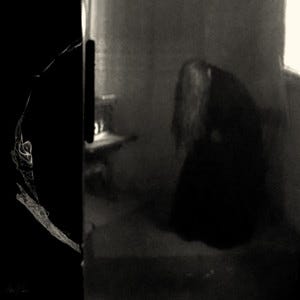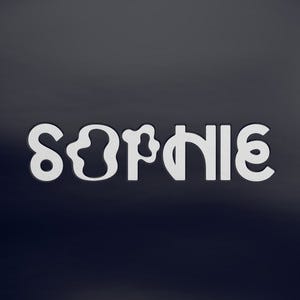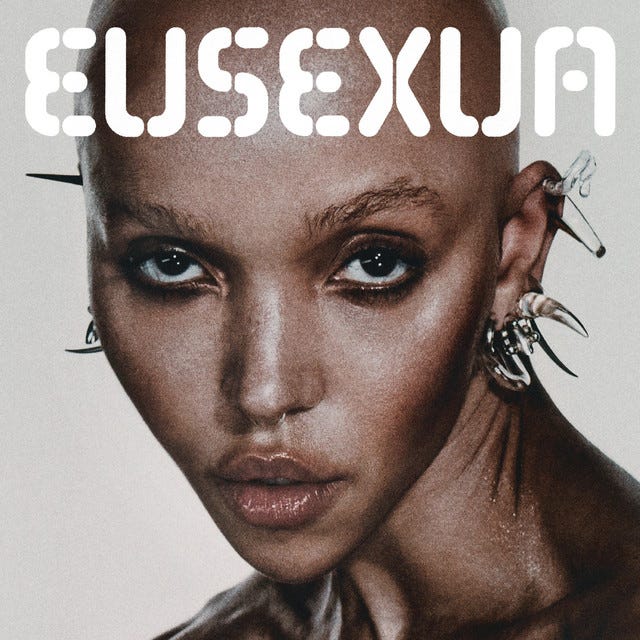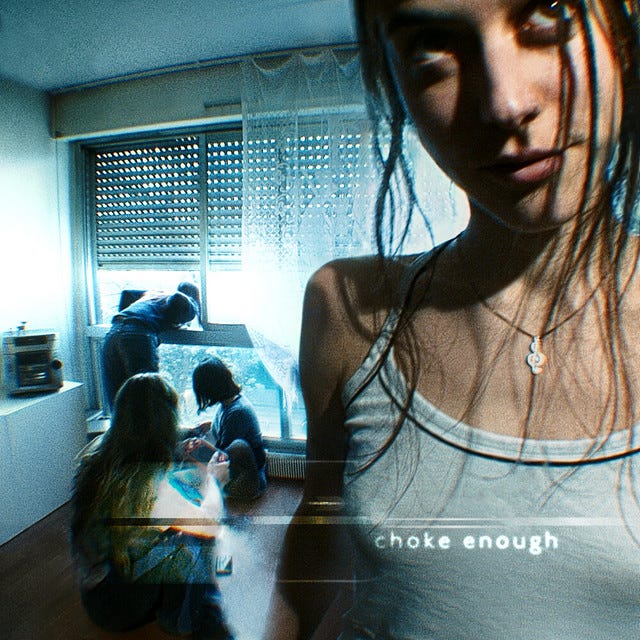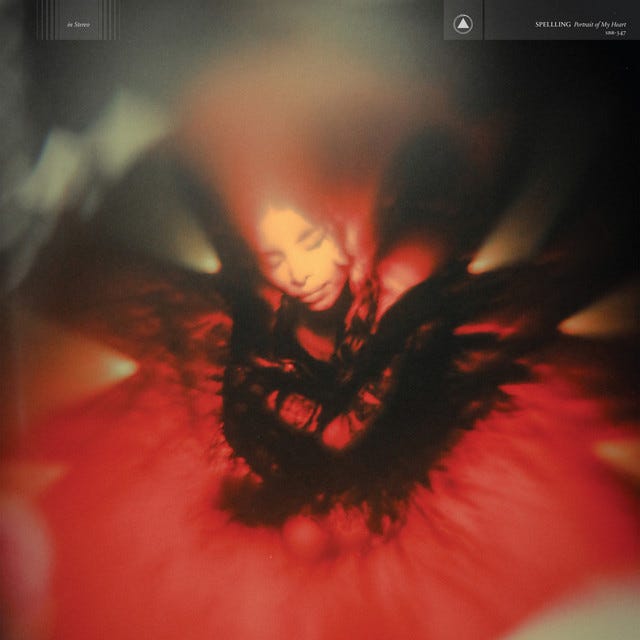This decade has been a game-changer for music, from the genesis of the COVID album to rap superstars broadening the hip-hop genre for future generations to musical greats like SOPHIE and Sade returning to the public eye much to our delightful surprise. 2025 has felt like the year for the more left-field, cult classic musical acts: for example, alternative pop acts mainly characterized by their refreshingly singular artistic intentions like Ethel Cain, Lorde, and FKA twigs have deemed this year to be the epoch of their return. However, this year has also been a huge window of opportunity for lesser-known acts to make their mark on the current music industry. This begs an important question to consider regarding the state of the culture of audiophilia: with all of the silently-growing star power from the more established acts along with the quick bursts of light from the fledglings, can the music industry stand the heat? That’s up to us to find out! 2025 has been an exciting year for audiophiles and casual listeners alike, what with the resurgence of beloved artists to new rising starlets taking risks to make names for themselves—and we’re only halfway through.
This is HALOZINE’s Favorites of the Year.
Singles
These are some of the best singles from the front half of this year.
January:
Shygirl’s “True Religion”
XLOV’s “I’mma Be”
KUKII’s “Daylight Heist”
February:
Samia’s “Lizard”
Lady Gaga’s “Abracadabra”
JENNIE & Doechii’s “ExtraL”
March:
Hearts2Hearts’s “The Chase”
MARINA’s “Cupid’s Girl”
SPELLLING’s “Destiny Arrives”
April:
Lorde’s “What Was That”
MARINA’s “Cuntissimo”
KATSEYE’s “Gnarly”
May:
Irene & Seulgi’s “TILT”
Arca’s “Puta / Sola”
Addison Rae’s “Fame is a Gun”
June:
Lorde’s “Hammer”
Caroline Polachek’s “On the Beach”
Zara Larsson’s “Midnight Sun”
Collections
Spanning mini-albums, collections, mixtapes, and compilations, these are the best projects of this year.
January: Ethel Cain’s Perverts Collection (8.2/10)
Hayden Silas Anhedönia is a master of narrative, and her studio recording Perverts shows no exception. Using the auditory intimidation of the drone genre, Anhedönia meditates on the power of sexuality through the lens of perversion in a kind of Nabokovian nature, which I expand on this in my analysis and interpretation of the collection here (link). Referencing Jean Baudrillard in equal measure with repeating phrases like “I love you” over and over again, Perverts is a project that is upfront with its standoffishness, but much like sexuality, it embraces you when you learn to embrace it.
February: Kelela’s In The Blue Light Live Album (9.6/10)
It takes a special kind of artist to immerse themselves in the reinvention of music, especially their own. Through the genre of jazz, electro-R&B siren Kelela Mizanekristos converts some of the classics in her discography into unforgettable arrangements for the patrons at Blue Note Jazz Bar in New York. In The Blue Light is a beautiful return to form for Mizanekristos, as she was raised on jazz due to her father—whom she thanks personally on the live rendition of “Better.” This record shows Kelela at her rawest, her most powerful, and somehow her most down-to-earth. Hearing her cheer on her backup singers on “Better,” ask for Black reparations and a free Palestine on the Betty Carter cut “30 Years,” and revere her ancestors and thanks them for the efforts so that she could be on the stage in “Blue Light” makes this one of her strongest works yet—it reverberates with her energy, and crackles with her candor. It’s one of my favorite bodies of work ever made.
March: NMIXX’s Fe₃O₄: Forward Mini-Album (8.2/10)
I have to admit that I was losing faith in K-pop’s ability to make cohesive decisions with music. Every recent mini-album, digital single, and full album from Korean pop outfits felt more manufactured than usual, with no backbone to the so-called “bodies” of work. However, the sextet of NMIXX defied all expectation with their newest mini-album Fe₃O₄: Forward. This mini-album threw together shattering trip-hop in “High Horse,” laid-back electro-pop in “Know About Me” and “Golden Recipe,” and experimental shifts in progression with the improvisation of jazz in “Slingshot,” “Papillon,” and “Ocean,” all with the beautiful tones from all six members. Furthermore, the use of the themes of steadfastness, self-determination, and kineticism are truly felt here: tracks like “Know About Me,” “Slingshot,” and “Papillon” all have sections that feel like the members are rushing towards something and jumping over hurdles and breaking through walls as one unit, one concept, one dream. In an industry that is focused on making easy-listening pop music that reflects nothing of substance, NMIXX’s Fe₃O₄: Forward is proof that K-pop doesn’t have live in this insular factory—it’s proof that creative risks can pay off in truly beautiful ways.
April: CHUU’s Only cry in the rain Mini-Album (7.6/10)
Following her removal from K-pop 12-piece outfit LOONA, fans of the group were looking to support the members in all of their endeavors. Kim Jiwoo, known mononymously as CHUU, has been releasing music as a solo artist since 2023 with her debut mini-album Howl. However, her first two mini-albums were admittedly middle of the road, with B-side tracks that probably should have been shelved due to their very simple designs. This pattern was shifted with her newest work Only cry in the rain, due to every track being memorable and contributing something new to the themes of emotional restoration and smiling after the wake of a breakdown. While it does suffer from the same issue of simple sonic designs that her last few releases had, what separates them beyond memorability is the use of vocal character. On track “Kiss a kitty,” CHUU begins a sort of talk-singing that can be comparable to rap (which isn’t my favorite but that’s less a CHUU problem and more of a K-pop problem) which juxtaposes sweetly with her clear tone of voice. The track is tongue-in-cheek, fruity in narrative and sound, and just all-around fun. The all-too-infamous adage in K-pop stan twitter “Bring back fun music” actually applies here: tracks like “Only cry in the rain” and “Je t’aime” are truly fun pop tunes, and bring a genuine smile to listeners, which is very hard to do in an industry that is constantly trying to sell you something. At least with CHUU’s Only cry in the rain, at least swiping your card will give you some joy when the receipt prints out.
May: PinkPantheress’s Fancy That Mixtape (8.8/10)
PinkPantheress began a sort of elusive act, with a few tracks on Soundcloud garnering TikTok fame like “Attracted to you” or “Break it off.” Firmly in the vein of drum ‘n’ bass, her anonymity and high-pitched and clean-cut voice gliding on top of the quick beats and meandering synths made her a force to be reckoned with. However, as she cited an ear injury after her first mixtape To hell with it for her lack of drum ‘n’ bass tracks, fans were understanding but disappointed. Experimenting with different electro-tinged genres on her debut album Heaven knows, PinkPantheress certified herself as not belonging in a certain niche, as well as an incredible writer and producer. But, her second mixtape Fancy That shows PinkPantheress at her most regular, and somehow her most refined and magical. Using britpop, inventive sample usages, and her special tincture of songwriting, PinkPantheress makes her mixtape a strong body of work that is worthy of being the soundtrack of your summer. Lead single “Illegal” is powerful, pondering, and plentiful in emotional resonance, and it’s simply detailing getting high with somebody. That’s the power of PinkPantheress: to make multiple songs that rely on the story of simply getting some weed or feeling insecure about a crush that sound completely different from each other and give different emotional payoffs. Fancy That is unapologetically British, much like its creator, which is truly felt with each track: on the reckless “Girl Like Me” and the maudlinly romantic “Romeo,” PinkPantheress samples beloved London-hailing electronic duo Basement Jaxx, and on the headbopper “Stars” samples English soloist Just Jack’s “Starz In Their Eyes.” In a time that samples are used to make the song into a nostalgia episode, PinkPantheress uses sampling, interpolation, and innocent writing to make a mixtape that is compelling and sustains her singularity in the music industry. Fancy That carries a special kind of sadness that has space for danceability, which makes it one that is painfully relatable and completely enjoyable. Like a much-needed joint after mediocre make-up sex with your shitty ex-boyfriend, Fancy That is a salve, a cherry lollipop, a good make-out session with your best friend’s hot older brother: an incredible force from a powerful producer and songwriter.
June: SOPHIE’s Product Compilation (8.9/10)
Sophie Xeon, known artistically as SOPHIE, was a fantastic and futuristic producer, songwriter, and DJ that ushered in the genesis of the hyperpop genre, who met her untimely end in 2021. Her compilation of singles named Product was one of her first works, and its reissue this June featured three unreleased tracks and reminded listeners and fans of how forward-thinking she was. Characterized by its empty spaces and elastically manufactured synths, the ten-year anniversary of Product is a wondrous peek into SOPHIE’s extensive potential that will forever remain unfortunately untapped beyond her posthumous eponymous release last September. Product is incredible in every way, with its memorable hooks and infectious melodies. The juvenile sonic character that drives “BIPP” and “LEMONADE” reaches a tangible emotional bruising in closer “JUST LIKE WE NEVER SAID GOODBYE,” and tracks like “HARD” and “OOH” reveal a silent vulnerability that ends up underscoring the special moments of either song. The whole project is nonstop fun, like an empty amusement park that’s left its gates open. Product is subtle, romantic, campy, high-octane, but above all else, Product is virtually inimitable. There will never be another SOPHIE, and there will never be another Product by extension. I personally thank SOPHIE for her contributions to pop music, and for her unforgettable artistry that will be remembered for its innovation and creativity.
Studio Albums
These are the best LPs of this year.
January: FKA twigs’s EUSEXUA (9.1/10)
Tahliah Debrett Barnett, known professionally as FKA twigs, has established herself as a true polymath in the alternative pop scene. With her two studio albums cementing her as a genre-redefining conflagration by way of excellence in dance, musical script, and concept work, EUSEXUA feels like both a current culmination of twigs’s artistry and the birth of a new creative process. This record is an open door into a new way of coalescing different soundscapes and earnest lyricism in order to convey emotional truths about the relationship with the body as well the journey to finding that all-encompassing, twirling-on-tiptoes-on-a-tightrope playful clarity that twigs deems “eusexua.” Through each of the eleven tracks exists a thread of breathless desire and forever-increasing stamina, feeding off your unburdenings and getting wasted off of your warehouse-scented sweat. An album that demands all extensions of physicality, it beckons you to the dance floor, spills a drink on your favorite top, and teases it off of you. twigs’s EUSEXUA is a record of internal discovery, and its main goal is to get the listener to shed every layer possible to be extraordinarily vulnerable in order to fully feel the extent of eusexua—whether that be referring to inhibition or form-fitting fabric.
From an audible standpoint, EUSEXUA does extremely well in tonal cohesion and sonic diversity. Each song has the possibility to stand on its own and contributes a different edge to the whole project. The slow build of the opener “Eusexua” sets the tone with its earthy booms and ephemeral production, and then bleeds very seamlessly into the coquettishly crafted “Girl Feels Good.” Singles “Perfect Stranger” and “Drums of Death” are bold and industrially percussive, and give the project the metallic sensibility that juxtaposes wonderfully with the softness of tracks like “24hr Dog” and “Wanderlust.” Moreover, the album is a masterclass in narrative design and thematic development. twigs had a clear vision and it’s clearly and concisely brought to fruition. Every aspect of eusexua is explored in their entirety: the releasing of emotional lightning from the bodily bottle in “Keep It, Hold It,” the dismissal of shame and embracing of the self and others in “Room of Fools,” the penchant for artistic chaos and intuition in “Childlike Things,” and the honest reflections on sexuality and desire in “Sticky” and “Striptease.” However, this begs the questions: if the record is so perfect, why isn’t it a complete ten? Furthermore, why is twigs preparing for a deluxe edition of the record?
Unfortunately, the aura of eusexua overshadows the staying power of some individual tracks. Most of the tracks require the rest of the album to fully appreciate. While they have the aforementioned possibility to stand on their own, some of them simply don’t. For example, title track “Eusexua” works well as is, but its bare-bones production compared to the rest of the record would fare better if the track functioned as a short intro instead of a lead single. This way, the track works as an introduction to the feeling of eusexua rather than a full explanation of it, and the shortness of the track is a technical choice that conveys a musical cliffhanger that the rest of the album can satisfy. As for the coming deluxe edition of the album, the new tracks could feature twigs repeating herself under the cascade of different soundscapes: a dancer using the same styles and choices with different songs. Coming from an artist that always tried to raise the bar, it feels unnatural for twigs to release a deluxe edition of an album that already did its best to express eusexua in its fullest. Does this mean that the strength of the original work isn’t as apparent and requires more context? Unfortunately we’ll have to wait until the deluxe drops to find out.
February: Oklou’s choke enough (8.0/10)
Coming off the heels of her 2020 mixtape Galore, Marylou Mayniel (known professionally as Oklou, pronounced “okay-lou”) coming out with her debut album choke enough was a surprise to most. Furthermore, what was also not anticipated was the sizable hysteria it caused, which was incredibly exciting to see—a hysteria definitely deserved. choke enough, a record incredibly intimate and exploratory in its soundscape, shows a great deal of artistic growth over the course of five years. The album feels misty and distant and luminescent, as if it comes from some radioactive rainstorm from towns over, only sustained by Oklou’s beautiful drizzle of a vocal tone. Produced almost exclusively by PC Music veterans A.G. Cook and Danny L Harle as well as frequent collaborator Casey MQ, the album is dubious and curious, conveying a sort of emotional wanderlust. Furthermore, the lyrics written primarily by Mayniel are drowsily esoteric, isolating the listener from something that seems to belong only to Oklou and her close-knit circle. Interestingly, this choice doesn’t push the audience away but challenges the listener to unlock the enigmatic core of the work. This clear button-pushing renders choke enough as a daring debut work, one characterized by its maudlin sensitivity and tempestuous audacity.
Delving deeper, choke enough is very good at crafting a single emotion with its tone and narrative. Oklou and her band of contemporaries are excellent at coming together to form a feeling of being lost and enjoying every twist and turn of the musical labyrinth. However, the maze of choke enough does suffer from a lot of dead ends and circling the same points multiple times. For example, the two interludes on the record don’t add a lot to the narrative at hand—in fact, they actually work to disorient the listener. The voice on “forces” speaks about forces that are “there to push [us] into an intellectual film,” which displays a disdain for logistically rationalizing emotion. However, it fizzles out in synths after sixty seconds. This aspect of the narrative could have been expounded upon more and ended up working against the core of the album. To craft an album focused on finding meaning and exploring different avenues through music and then fail to explore the intellectualizing of emotion and its drawbacks is a huge misstep.
However, the album then makes up for it by giving us one of the best meditations of isolation and movement in not only Oklou’s career but in a landscape obsessed with nostalgia: the euro-dance sleepless hit “harvest sky.” The collaboration with American musician underscores is fast-paced and energetic, despite the track being about choosing to be far away from the fervor of a good ol’ rager a la 2015-era Alesia Cara. Oklou and underscores’ delicate vocals against the electrifying four-on-the-floor production is a wonderful contradiction that reflects the solitudinous essence of the track. Furthermore, the racing “ict” (acronym for “ice cream truck”) and boundless “plague dogs” are as addictive as they are introspective. With lyrics like “strawberry dancer / vanilla summer / driver, pull over / ice cream truck” and “drawing poems in the sand with the tires / dancing with helicopters above,” the tracks feel as free and exciting as a midnight dip at the beach. However, these uppers come after forgettable valleys in the album, almost as if the album is self-aware about its shortcomings. We can only hope that Oklou’s next work finds a destination, because as beautifully curious choke enough is, it’s also unfortunately unaware that being lost is just as disorienting as it is liberating.
March: SPELLLING’s Portrait of My Heart (8.0/10)
Theatricality is very hard to pull off in this age, especially in an era where everyone is trying to take up as much space as possible by any means necessary. However, SPELLLING (the artistic persona of Chrystia Cabral) masters the artistry of drama in her oeuvre. Through the darkly intimate Pantheon of Me, the swampy magical bog of Mazy Fly, and the balletical enchantment of The Turning Wheel, Cabral brings back over-the-top theatricality and earnest campiness never before seen since the uniquely arcane Kate Bush. And with her newest work Portrait of My Heart, SPELLLING manages to usher in the raw power of the rock opera through her examination of the throes of romance, regret, and reality. An album both clamoring and classical, Cabral manages to encapsulate her experiences into a work that feels utterly timeless, which is very hard to do correctly in a time where everyone is trying to capture the magic of various successes in the past. Furthermore, Portrait is a work that honors the purity of the record. Just eleven tracks, the A-side and B-side of the album are expressed in a manner that is both obvious to the trained ear and under-the-radar for the general streamer. The general public hasn’t been given an album that feels like it should be on vinyl in years, which only serves to make SPELLLING not just a student of the craft but valedictorian of her class.
While Portrait of My Heart excels at achieving a certain tone that would do exceptional on the turntable, it’s a departure from the artistic idiosyncrasy that made SPELLLING such a force to be reckoned with. The album borrows from only a few subsections of indie rock and doesn’t diverge from that simple sound. Unlike her past works, Portrait plays it safe. For an album that is supposed to be her most human, this reflects a certain milquetoastness on its progenitor. The melodic structure and lyricism, while technically solid and emotionally sweeping, seems subdued when compared to the kitschy soundscape of Mazy Fly and the orchestral power of The Turning Wheel. While it’s not completely fair to compare past works to a current one, especially when it’s deemed the most personal work to date, Portrait of My Heart leaves something to be desired. There is so much magic in love and loss, and it’s felt in the climax in “Keep It Alive,” the daring clangor of “Ammunition,” and the dazzling phantasm of “Drain.” Is it so much to ask for those peaks to feel more grand, or for the chasms of the record to offer a sense of wonder rather than safety?
April: Wet's Two Lives (7.9/10)
Brooklyn-born Wet vocalist Kelly Zutrau has been crooning about the power of love and the lack thereof since their popular track “Don’t Wanna Be Your Girl” had a hold on the electronic alt-pop purists eleven years ago. Despite the odds of replaceability, Zutrau, producer Joe Valle and guitarist Marty Sulkow have managed to maintain their softness for years to come. Their ponderings on the edgelessness of intimacy and fuzziness of loneliness have melted into each other into their newest release Two Lives, a love-filled embrace that hopeless romantics, married couples, and bitter singles can find something in. From their inventive debut Don’t You, the meditative and classical follow-up Still Run, and the slippery and sentimental Letter Blue, Wet has learned to pick up speed, yet still choose the scenic route instead of forcing themselves into musical burnout. Drawing comparisons to Kllo in soundscape and Cocteau Twins in hazy vocal performance, Two Lives is contemplative, touch-drunk, and energetically magnetic. The tipsy meditations of “Rosy,” the open-road expansion of “Signs,” and intelligent stuttering of “Double” mark the record as an indie choice for those looking for an insular and soulful collection of audible neck nibbles. Zutrau’s soft vocals and the instrumentalism of Valle and Sulkow morph Two Lives from a standard love album into a porcelain eye into the idealism of love—devotion, domesticity, and finding the adventure in the dormant.
However, while the record is the group’s most intentional, it unfortunately is their least expressive. Despite its clear concept, the actual emotion of the project is clunky and juvenile. The risks that the production team of Joe Valle, Daniel Aged, Buddy Ross, Aidan Spiro, and Rob Ackroyd took are very appreciated, but they aren’t done with a lot of artistic restraint: Zutrau’s voice, usually stable and the heart of the discography, is treated as a synth rather than a human creation. Seemingly sped-up for more than half of the album, they ask the listener to forget that this work is intended to be a romance album: instead of saying “hold my hand,” they fracture the wrist instead and then sloppily kiss the cast. Tracks that leave Zutrau’s voice alone like “My Everything” and “Higher than the Sun” should then be standouts, but buckle under the idea of being boring. The sonic moodboard was either lackluster oversights or just remakes of deep cuts from 2021’s Letter Blue. While that record borrowed from simpler soundscapes, the tonal cohesion was a lot stronger and gave a spine to the work. The true problem with Two Lives is its sniveling cowardice, and that unfortunately works very dedicatedly to its detriment. However strong the concept was and how emotional some of the songs can be, the album as an album is a very weak project. Desperately reliant on its preceding work for discographical relevance, Two Lives is a clingy album that loves embracing grudges rather than the paramour in the narrative. While the scenic route is beautiful on some days, Wet should have taken the shortcuts back home—risking burnout is sometimes necessary instead of putting your audience into a feverish sleep.
May: Erika de Casier’s Lifetime (8.9/10)
Erika de Casier is an artist whose influences span multiple genres and generations, but has always returned back to the sultry vulnerability of R&B. However, her sonic style isn’t in the same vein as the so-sad-so-sexy stylings of the Brent Faiyazes or the Abel Tesfayes of the genre. Rather, her discography is tinged with references to the 1990s and early 2000s that she always manages to keep in musical vogue with her modern twists. It’s very easy to be a genre- or decade-rehash artist, and in this current terrain of music it seems like that’s the choice many artists make to earn a quick buck—which is understandable considering how we’re in the eye of an economic monsoon. However, originality prevails, and de Casier is definitely an original artist, and her newest record Lifetime is a trip-hop mirage that is serene, sensory, and refreshingly self-aware. Using the subgenre of trip-hop rather than her usual modern takes on R&B was a left-field choice, but what stays true with Lifetime that marks de Casier as an artist to watch is her down-to-earth approach to lyricism. Taking a look at the velvety volatile “The Chase,” her opening lines are relatable and effective: “hit midnight / not even a text to hold me warm / don’t think I’ll be waiting / you have like two weeks, maybe, tops.” This is what keeps fans coming back for more: it’s not only the inventive subversions within the R&B genre or her infectiously plush-soft tone, it’s the witty lyrics that seem pulled off from the beautiful diaristic rhapsodies of your best friend in between pretty pictures and poetic reblogs on her Tumblr account.
However, what must be criticized about Lifetime is that it’s too reliant on one genre and that it’s her least modern work. Her 2019 Essentials, 2021 Sensational, and 2024 Still called on the unique allure of Janet Jackson and the voracious chaos of the Cheetah Girls, so one would think that Lifetime would subvert the intimacy of trip-hop greats like Massive Attack or Everything But The Girl or Portishead, but unfortunately the album doesn’t feel specifically special, it’s all just incredible takes on trip-hop. While her lyricism remains as special as ever, the music surrounding it feels static, unlike the rest of her works. This could be due to the fact that the music was first heard on cassette tape and that the entire release was a surprise, but it shouldn’t matter the modality or the lack of anticipation—Lifetime lacks a certain dynamic sensibility that drives the rest of de Casier’s oeuvre. Looking closer at Essentials, Sensational, and Still, the music lived and breathed and moved just like its progenitor; they were erratic and unpredictable and flamboyant while maintaining a naive earnestness. Lifetime is definitely earnest but it’s much like de Casier on the cover of the LP: sleepy and constant while the warmth of the world blazes on without her. While I can appreciate the comfort of an afternoon nap, Erika de Casier makes me want to dance, not to take a siesta.
June: Lorde's Virgin (9.6/10)
Lorde’s ability to stop the world every four years with a record is a skill that not a lot of artists have. Starting off her stardom with an anti-capitalist teenage romp of “Royals” and maintaining it with the poignant “Buzzcut Season,” iron-hot “Team,” and the buffed and bruised 2013 debut of Pure Heroine, Ella Marija Yelich O’Connor made a spectacle of herself in the pop scene. Flash forward to the summer of 2017, and the scorchingly sentient Melodrama took the world by storm. Produced by Jack Antonoff, the record blared and cooed with scintillating descriptions of a car crash on “Homemade Dynamite,” the polar deep cut discussing love and the lack thereof in the current generation of youth at time of release in “Hard Feelings / Loveless,” and the emotional impalement of wanting permission to move on in the captivating opener “Green Light.” While the heat significantly cools down in the 2021 follow-up Solar Power with its comparisons to soft pop heralders like Natalie Imbruglia and Natasha Bedingfield, one thing remained constant: Lorde thought she understood the world around her—which makes her 2024 release Virgin so impossibly exciting. Album opener “Hammer” is reliant on one singular theme: “I’m ready to feel like I don’t have the answers.” Then, the next track has the audacity to ask a question and demand an answer: what was that? This choice would probably be deemed hypocritical and disorganized, very unlike Lorde’s artistic decisions regarding her music—if that weren’t the whole point of the album. Virgin wishes to discard the desire for answers but still be filled with so many questions, which is a primary factor in what makes the album feel so relatable. Many of us say that we are done with looking for answers in anything, but it’s in our human nature to be curious and to want to understand why everything is the way that it is. It’s an album that is perplexed, polished, and positively delicious.
From a technical standpoint, it was always going to get comparisons to the critical darling that was Melodrama. While I don’t think that all of these comparisons come from a fair place (and some of it definitely comes from a place of misogyny), what stops Virgin from being a perfect ten is its repetitive sonic textures that had the possibility to be as fervent as Melodrama, so as to give that same feeling without sounding similar. Jim-E Stack and guest stars like Blood Orange and Fabiana Palladino helped to forge Virgin into the force it is, but what it’s missing is the silent beauty of influence. Tracks like “Man of the Year” and “If She Could See Me Now” share a similar tumult, but they suffer from not letting their special appearances (Devonté Hynes of Blood Orange and Fabiana Palladino respectively) get in the DAW and add their own sort of magic in there—imagine if “Man of the Year” descended from the chaos of its denouement into something resembling the thump and circumstance of “Charcoal Baby” or “You’re Not Good Enough,” or if “If She Could See Me Now” continued into the musical twilight of “Deeper” or “Closer.” While it would be a bit disjointed, isn’t that the ethos of Virgin? To embrace the empty spaces and flip-flops of life? While the narrative of Virgin is naturally fluctuating, what would make the album absolutely perfect is if the narrative and soundscape were in equal amounts of haywire. “Clearblue,” “David,” and “Shapeshifter” are excellent examples of this balance, and they are absolute standouts on the record. While I wouldn’t appreciate the whole album if it all sounded like those three cuts, I would appreciate the wondrous disorder that comes from the heart of Virgin.
I hope that you enjoyed this musical retrospective, and that you found a new song to obsess over to get through the back half of 2025. July is shaping up to be a slow month for albums, but perhaps a release will wow me—and I’m excited for that.
This is HALOZINE, divining out.







